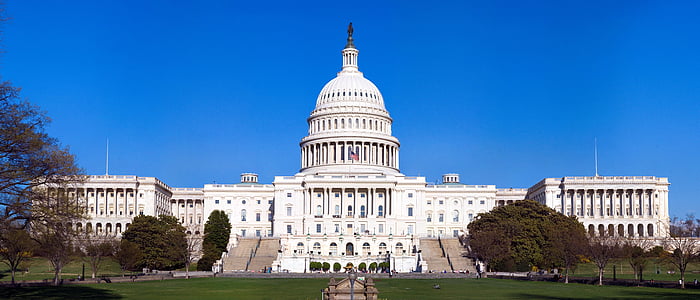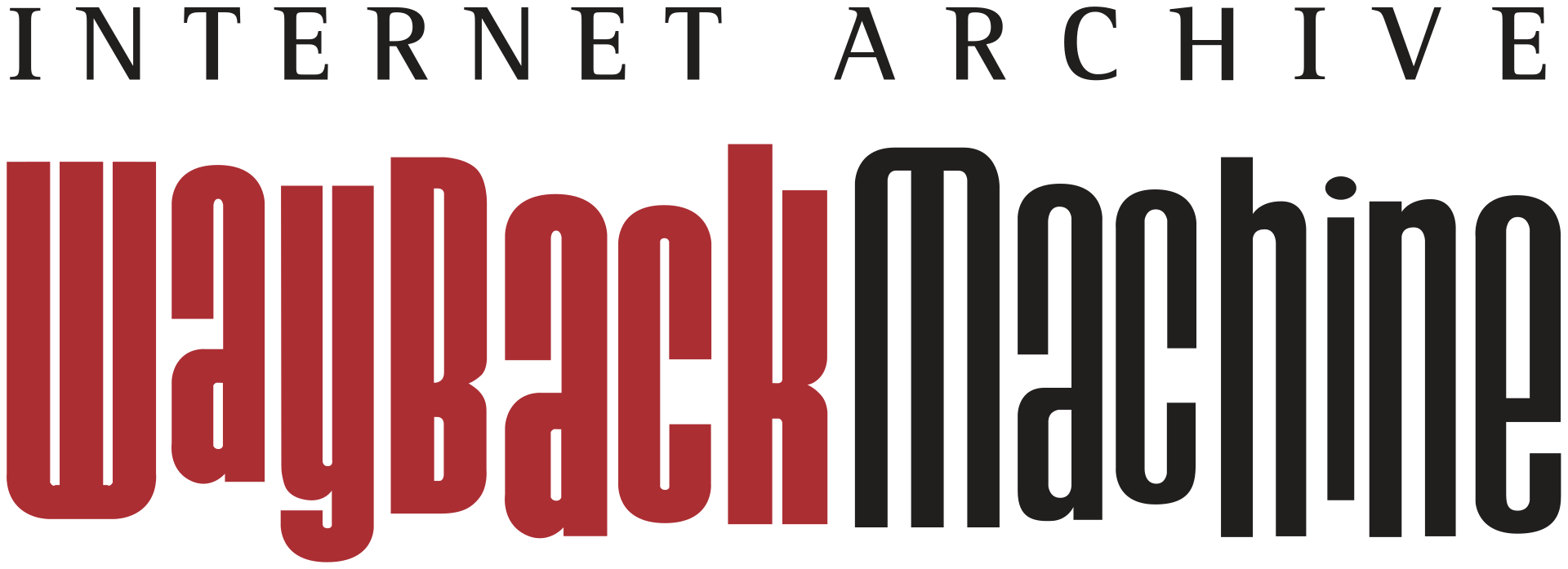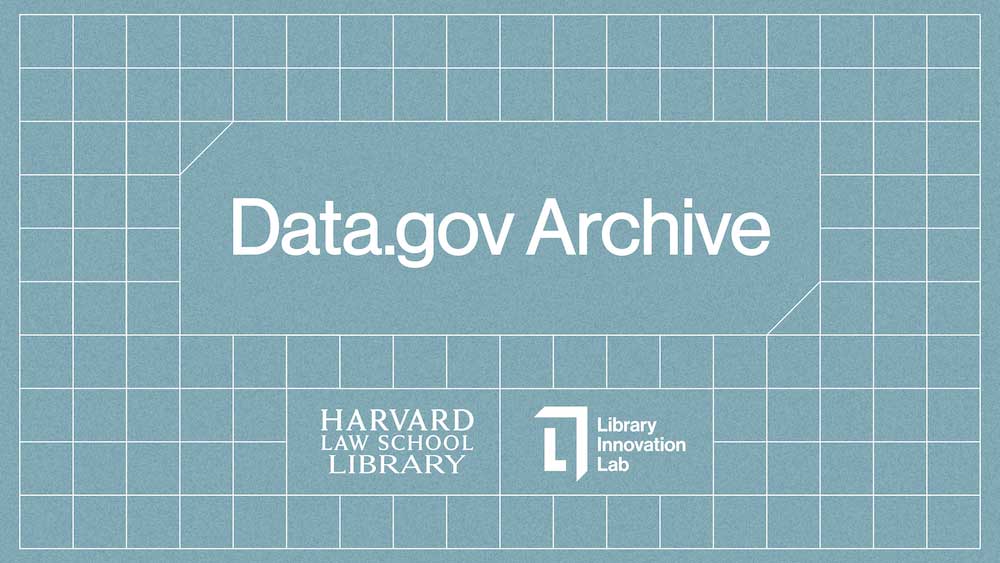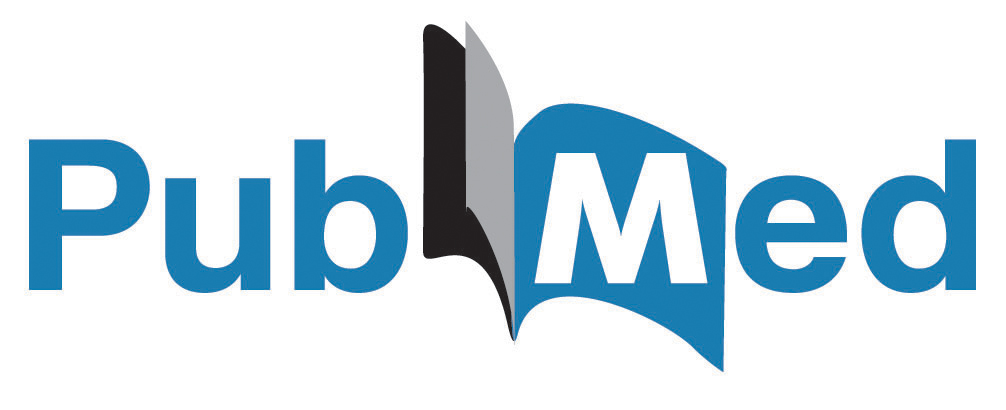(and information about what is happening within the STEM information landscape)

With the transition to the new government in the United States, we are seeing some major changes in the US federal information landscape.
This blog post aims to bring together information for LSHTM staff and students on alternative sources of removed information, as well as some sources you can follow for updates. This is not a definitive list and will be updated as we receive reliable information.
Contents
- Finding copies of publications which have been removed
- Finding copies of datasets which have been removed
- Finding copies of multimedia which have been removed
- PubMed (also Medline and MeSH) and other federally funded information sources
- Evidence of political interference in the scientific record
- Keeping up to date
- Similar lists from other institutions
- Responses from stakeholder institutions
- Edits and updates
1. Finding copies of publications which have been removed
1.1 
The best place to look for information removed from the internet is the Wayback machine.
The Wayback Machine is part of the Internet Archive which, as the name suggests, aims to archive the internet. You can search for a web address and view the copy of that website on a particular day and at a particular time. The Internet Archive have a help page with lots of useful information on how to use the site.
When you view a website via the Wayback machine, you should be able to view text and images, and click links to related pages, including PDF files. However any site search tools will not work. This is due to the types of files archived by the service.
1.2 End of Term Web Archive
The End of Term Web Archive is a collaborative project which systematically saves U.S. Government websites during the transition period between administrations.
As of 5 March 2025 the USAID website has been removed. Therefore, all USAID publications are no longer available from their website. Some publications from the CDC have been removed from their website, although the site is still up and contains information on some topics.
1.3 Removed CDC information
Planned Parenthood has saved CDC information relating to LGBTQ+ people or reproductive rights on their website: https://www.plannedparenthood.org/learn/for-health-professionals
1.4 Other lists of alternative information sources
Libraries have published guides on alternative sources of information. I have linked some below:
1.5 Lists of information sources which have been removed
Wikipedia has a page which attempts to list all of the datasets and webpages removed 2025 United States government online resource removals
2. Finding copies of datasets which have been removed
As well as publications, many datasets, tools and other data are no longer available.
Unfortunately datasets which are not publicly available may be permanently lost. These often contain personal information so access is strict. This disrupts efforts to backup the data. 404 Media have written about this. Massive, Unarchivable datasets of cancer, covid, and alzheimer’s research could be lost forever.
The BBC have written about the efforts to save data, see https://www.bbc.co.uk/future/article/20250422-usa-scientists-race-to-save-climate-data-before-its-deleted-by-the-trump-administration.
2.1 
A number of efforts are taking place to backup data and make it available elsewhere. The Data Rescue Project are trying to document these efforts. A list can be found at https://www.datarescueproject.org/current-efforts/.
2.2 
Harvard Law School Library Innovation Lab Team have released the data.gov archive on Source Cooperative. The data is available at https://source.coop/repositories/harvard-lil/gov-data/description and there is also a blog post announcing the release from 6 February 2025.
2.3 Other lists of alternative information sources
Libraries have published guides on alternative sources of information. I have linked some below:
2.4 Lists of datasets which have been removed
Wikipedia has a page which attempts to list all of the datasets and webpages removed 2025 United States government online resource removals
NOAA National Environmental Satellite, Data, and Information Service has published a list of changes to their list of datasets, which includes several items which have been decommissioned.
The Lancet reports that access to a number of federally funded datasets has been banned for researchers from specific countries, see Furlow, B. NIH access bans imperil global scientific cooperation. The Lancet 2025 405(10488): 1453-1454. doi: 10.1016/S0140-6736(25)00818-9.
The University of Cambridge, who host FlyBase, has announced that it’s NIH funding has been terminated. Therefore, no new updates will be possible after July 2025 and access to the database may be lost. FlyBase is the Drosophila genetics database.
3. Finding copies of multimedia which have been removed
Many other types of media have been removed, including webpages and videos. Here are some archive sources of these:
3.1 Webpages
As with publications, the best place to look for prior versions of webpages, or removed webpages is the Wayback Machine.
3.2 Videos
Grumpy.Systems is keeping notes of removed videos from Federally-funded sites and uploading them to the Internet Archive.
4.  (also Medline and MeSH) and other federally funded information sources
(also Medline and MeSH) and other federally funded information sources
Please note that as of 05 March 2025 there has been no reported change to the editorial oversight or content management of PubMed/Medline or to its update schedule or distribution. However, given what we know has happened in other federally-funded information sources, PubMed/Medline may cease to be as reliable as it has been and we may need to pivot towards using other literature sources.
PubMed and Medline are datasets which are compiled and distributed by the National Library of Medicine, which is part of the NIH National Centre for Biotechnology Information. The databases are very similar, see MEDLINE, PubMed, and PMC (PubMed Central): How are they different? for an explanation of the differences and similarities.
There are a number of different ways that PubMed/Medline may become less useable:
- The underlying infrastructure may become less robust. This may lead to slower search times and longer downtime. Security of NCBI usernames and passwords may be compromised. If you have an NCBI account, you may wish to increase the strength of your password. As always, do not use the same username/password for multiple accounts.
- Collection policy may change. This may lead to journals of questionable quality being added to the dataset, or journals on politically charged topics being removed. Be aware that individual articles may be added or removed. Again, this is more likely to occur if on topics which are politically sensitive.
- Indexing policy may change. Articles in PubMed/Medline are tagged by subject. The subject scheme used is called MeSH (Medical Subject Headings). These tags, or index terms, are used to help researchers find articles on their subject. Indexing policy around politically sensitive subjects may change, resulting in articles becoming more difficult to retrieve.
- Access to the database is restricted in some way. PubMed is currently available to world for free. This may change. Free access may be restricted to certain jurisdictions, or to certain types of data.
Hilda Bastian has written an excellent blog post explaining these issues: What if we can’t rely on PubMed?
The German National Library of Medicine has met to discuss plans for an alternative to PubMed. The plan is for this to not be dependent on one country or to be a duplicate of an existing infrastructure. Instead, it is to develop an open source, federated alternative. Hilda Bastian, who has previously worked at PubMed, has written an excellent blog post outlining the idea: Germany’s plan for an open and independent PubMed safety net. The meeting has been published on YouTube (the meeting is conducted in German, go to the subtitles to see and English translation). You can sign up to the project list at https://www.listserv.dfn.de/sympa/info/project_olspub.
4.1 Federally funded journals
The University of Washington University Libraries have published a list of Federally published peer-reviewed journals. Given the Executive Orders signed by the President, it may be that the subjects covered by some of these journals changes or the range of range of topics and analysis accepted for publication is amended.
2025-05-06 The journals “Environmental Health Perspectives” and “Journal of Health and Pollution” are unable to consider new manuscript submissions “due to recent changes in operational resources”. See https://ehp.niehs.nih.gov/do/10.5555/bf165cf1-82f3-44a4-90af-07ebe9543ae7/full/ for details.
4.2 Federally funded bibliographic databases
ERIC: As of 2025-03-26 there are reports from members of the ACRL Evidence Synthesis Methods Interest Group that the ERIC database, which is produced by the US Department of Education is reducing the number of journals indexed in the database by 45%, starting 24 April 2025. The list of removed journals has not yet been released, their editors are currently being informed of deselection. All records entered into ERIC prior to these changes will be retained.
2025-05-06 update. After rumours that the ERIC database would no longer be produced due to it’s funding being cut, it has now been announced that ERIC will continue. No content has been removed or deleted from ERIC, however it will be operating under a “more refined scope”. It is currently unclear what impact this will have. See this discussion post on the ACRL Evidence Synthesis Methods Interest Group for details: https://connect.ala.org/acrl/discussion/fwd-continuing-the-work-of-eric-1.
2025-06-27 update. Following the uncertainty around the future of ERIC, there are reports that Clarivate Analytics have committed to produce an alternative called the ‘ProQuest Education Research Index’ which will be free. More details: https://www.researchinformation.info/news/clarivate-reaffirms-support-for-eric-launches-free-index/
4.3 Federally funded libraries, archives and museums
The Archivist of the United States was sacked on 7 February 2025. The Society of American Archivists released a statement on 25 February 2025.
As of 31 March 2025, all staff at the Institute of Museum and Library Services (IMLS) have been placed on administrative leave. This suspends all grants and contracts to local libraries, archives and museums across the USA and is likely to result in a loss of service to users. The IMLS is the main source of federal support to American libraries, archives and museums. The ALA (American Library Association) has released a statement: “ALA says White House “cutting off opportunity” for Americans as administration cuts IMLS staff“, as has the AAM (American Alliance of Museums): “AAM Statement on the Placing of IMLS Staff on Administrative Leave“.
Some good news on 21 May 2025, following an order from a federal judge, staff at the IMLS are returning to work and some grants are being restored. However the ALA report that this is temporary and limited.
The Library Journal infoDOCKET is maintaining a list of statements from National and International bodies about these cuts: Roundup: statements in response to Executive Order impacting the Institute of Museum and Library Services (IMLS).
The Librarian of Congress has been sacked. Carla Hayden’s ten-year term of office was due to end next year. As of 2025-05-08 her successor has not been appointed. The American Library Association released a statement on 2025-05-09. Richard Ovenden, Director of the Bodleian Library, University of Oxford, wrote a comment piece in the Financial Times, published 12 May 20205.
The Register of Copyrights and Director of the U.S. Copyright Office, Shira Perlmutter has been fired. As of 2025-05-12 her successor has not been appointed. This has been reported by a number of different news sources, such as POLITICO. It is being suggested that her firing comes after the release of a report expressing concerns about the use of copyrighted materials by AI technologies.
The Archivist of the United States, the Librarian of Congress and the Register of Copyrights have now all been sacked.
The U.S. Department of Defense released a memorandum on 2025-05-09, requiring staff at the department’s libraries to identify and sequester materials retrieved under a provided list of Library of Congress Subject Headings. These include, but are not limited to “Affirmative Action”, “Critical Race Theory”, “Diversity in the Workplace”, “Transgender Military Personnel” and “White privilege”. The American Historical Association released a statement on 19 May 2025 condemning this move.
5. Evidence of political interference in the scientific record
There are lots of rumours and misinformation around political interference in the published scientific record. We aim to record reputable sources only.
- Morabia A. AJPH and the threat of political interference in scientific publishing. Am J Public Health. 2025:e1–e2. https://doi.org/10.2105/AJPH.2025.308100.
Alfredo Morabia is Editor-In-Chief of the American Journal of Public Health and here he reports: “In recent weeks, several requests have been made to AJPH mentioning these orders [Executive Orders issued by the Trump Administration]. Officials from federal institutions have requested the withdrawal of articles supported by federal funds, citing concerns that they address politically sensitive topics such as transgender health. Authors have sought to modify accepted or in-press articles by removing their names from the author list. Other requests include modifying specific wording or eliminating sentences after the article has been accepted.” [pg e1] - Antin, T. Annechino, R. Resisting attacks on science. Center for Critical Public Health [blog] 2025-03-21 https://criticalpublichealth.org/blog/2025/03/21/resisting-attacks-on-science/.
The authors report that they had a publication peer-reviewed and accepted by the journal Public Health Reports, the official journal of the Office of the U.S. Surgeon General and the U.S. Public Health Service. However, they were told to remove demographic data reporting the sexualities of participants and remove the word ‘equitable’. - There have been a number of reports of medical journals threatened by US government attorneys. This opinion piece in Scientific American pulls the information together as of 2025-05-01: Reinhart, E. The scary implications of U.S. Government attacks on medical journals. Scientific American. 2025-05-01. https://www.scientificamerican.com/article/the-scary-implications-of-u-s-government-attacks-on-medical-journals/.
- Science reports on the “fear factor” leading to self-censorship and a change to publicity of findings. Cornwall, W. With Trump’s cuts escalating, “fear factor” silences researchers. Science 2025: 388(6748) 684-685.
- The BMJ reports that a recent executive order would “install political appointees at the apex of the scientific process, with a mandate to edit or discard science that did not meet the administration’s criteria and potentially discipline scientists”. Dyer, O. Trump’s “gold standard science” rule would let political appointees edit government science and punish scientists, critics say. BMJ 2025: 389.
6. Keeping up to date
There are a number of ways to keep up to date with developments. We have tried to list reliable sources only. However, please check information carefully as, unsurprisingly, there is a lot of misinformation around. Many of these sources list changes across US Government, not just medical information sources, so they may be of use to others across LSHTM.
2025 Administration Transition Information & Resources from the Council on Government Relations
GovSpeak Errors from UC San Diego Library
Silencing Science Tracker from the Sabin Centre for Climate Change Law at Columbia University and the Climate Science Legal Defense Fund.
U.S. Government Information: Trump Trackers from UC San Diego Library
7. Similar lists from other institutions
American University, Washington D.C. Government Information Data Rescue
MLA (US Medical Library Association) Accessing Public Data removed from US Government Websites
St Louis University Library Where to find Preserved Data/Websites
Tulane University Libraries Finding Government Data removed by the 2025 Presidential Administration
University of Exeter Library: Alternatives to United States NLM Resources
University of Leicester Library: How do I find US Federal Government data?
University of Minnesota Libraries Finding Government Information during the 2025 Administration Transition
Wikipedia has a page which attempts to list all of the datasets and webpages removed 2025 United States government online resource removals
Prof. Christina Pagel from UCL has put together a Trump Action Tracker which is constantly updated. It is possible to filter the entries to those “Attacking Science, Environment, Health, Arts & Education“. She has provided more information via a thread on her BlueSky account.
8. Responses from stakeholder organisations
- AAM (American Alliance of Museums) released a statement on 31 March 2025.
- ALA (American Library Association) released a statement on 15 March 2025.
- ALA (American Library Association) released a statement on 31 March 2025.
- ALA (American Library Association) released a statement on 9 May 2025.
- ALA (American Library Association) released a statement on 21 May 2025.
- AHA (American Historical Association) released a statement on 19 May 2025.
- ARA (Archives & Records Association UK & Ireland) released a statement on 3 March 2025.
- CILIP (UK Library & Information Association) released a statement on 18 February 2025. This calls for UK-based information professionals and the wider information community to ” share examples of how content, reports, datasets, evidence, and tools are being removed by US authorities”. LAORS have contributed.
- COPE (Committee on Publication Ethics) released a position statement on 13 February 2025.
- COS (Centre for Open Science) released a statement on 20 March 2025.
- ICMJE (International Committee of Medical Journal Editors) released a guidance notice in February 2025.
- The International Federation of Library Associations and Institutions Advisory Committee on Freedom of Access to Information and Freedom of Expression (IFLA FAIFE) released a statement on the threats to information freedom in the United States on 14 May 2025.
- The MLA (US Medical Library Association) released a position statement on 25 February 2025.
- NAGARA (National Association of Government Archives and Records Administrators released a statement on 27 February 2025.
- Organization of American Historians announced a ‘Records at Risk Data Collection Initiative‘ on 12 March 2025.
- Society of American Archivists released a statement on 25 February 2025.
9. Edits and updates
2025-03-14: Organization of American Historians ‘Records at Risk Data Collection Initiative’ announcement added to section 6.
2025-03-17: New section on “Finding copies of multimedia which have been removed” added.
2025-03-17: Statement from ALA on ‘White House assault on the Institute of Museum and Library Services’ added to section 7.
2025-03-18: New section on “Evidence of political interference in the scientific record” added.
2025-03-25: COS statement added to section 8.
2025-03-26: Information added about ERIC and federally-funded journal titles in section 4.
2025-04-01: St Louis University Library page added to section 7.
2025-04-02: Section 4.3 added to note that all staff at the IMLS have been placed on administrative leave.
2025-04-11: Link to 404 Media article detailing potential loss of medical datasets to section 2; Link to infoDOCKET page on national and international statements on impacts of cuts to IMLS added to section 4.3; List of alternative sources of information from MLA and Tulane University Libraries added to section 7.
2025-04-14: Link to Wikipedia article on removals of datasets and webpages added to section 7.
2025-04-17: Sections 1.5 and 2.4 have been added. These contain links to pages which detail specific datasets and/or information sources which have been deleted.
2025-05-06: Link to a BBC article on efforts to save federally-funded data added to section 2. Link to article in The Lancet added to section 2.4. Link to article in Scientific American added to section 5. Update on two NIH-funded journals added to section 4.1. Update on the status of the ERIC database added to section 4.2.
2025-05-08: Link to the sacking of the Librarian of Congress added to section 4.3.
2025-05-12: Link to ALA statement on the sacking of the Librarian of Congress added to section 4.3 and section 8. Link to reports of the sacking of the Register of Copyrights added to section 4.3. Link to the U.S. Department of Defense memorandum listing specific LoC headings to be used to sequester items from the department’s libraries.
2025-05-22: Link to the ALA statement on the return of IMLS staff and reinstatement of some grants added to section 4.3. Links to information about the German plan to produce an open source, independent version of PubMed added to section 4. Link to the AHA statement condemning the removal of items from military libraries added to section 4.3. Link to the IFLA FAIFE statement on the threats to information freedom in the United States.
2025-06-02 Link to BMJ news article on the potential for a recent executive order to allow political interference in the scientific record.
2025-06-27 Link to report that FlyBase funding has been terminated in section 2.4. Link to news report on Clarivate Analytics’ alternative to ERIC added to section 4.2
2025-07-28 Link to the Trump Action Tracker maintained by Professor Christina Pagel.









